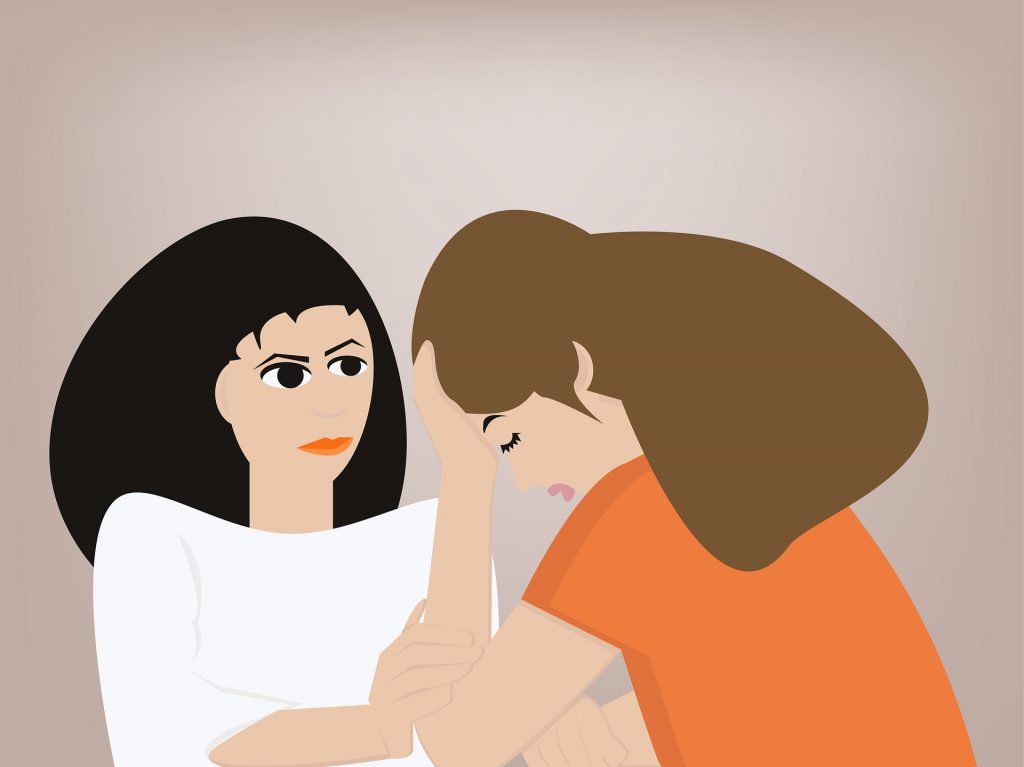
by Jessie Brar – Follow @jessieebrar
I was always really scared of going into therapy. At first, it was because I feared what people would think of me. I thought I would be called crazy. I thought my loved ones would judge me. I thought my friends would think differently of me. As I grew a little older, I realized that those who loved me wouldn’t care if I was sitting with a therapist to get some help. In fact, I knew they would be proud of me. Then I realized something else. I didn’t know how to talk in therapy. I didn’t know how to talk about my feelings.
Talking about one’s feelings is often looked down upon in many South Asian cultures. Growing up in my Punjabi household, my grandparents made sure that children didn’t speak unless when spoken to. If I was acting happy, I would be told to shut up. If I was crying, I would be told to go to my room. I wasn’t allowed to have feelings. When we moved out, my mom tried really hard for us to be open about our feelings, but by that point, I didn’t know how to be.
When I was 16, I was sent into court-mandated talk therapy, due to a custody battle that was going on between my mom and my grandparents. The court wanted to know if I was happy living with my mom, which I was, but they needed clinical proof from a therapist. I remember going into the therapist’s room and thinking:
This is not going to work.
[Read Related: 5 Myths About Therapy Every Millennial Has Thought About At Least Once]
The first thing the therapist did was ask me how I was feeling about the court case. I told her that I loved my mom. I told her that my grandparents were manipulative and abusive. That was that. She asked me how that made me feel. I said I didn’t know. She asked me if I was sad. I said I didn’t think so. She asked me if I was angry. I said I was fine.
Somehow, I left the office feeling worse. I felt rage bubble inside me. I felt angry with myself because I didn’t know how to speak about what was going on in my head. I knew she was trying to help, but my mind wouldn’t let her.
In university, I was under a lot of stress, as many students are. I was trying to balance academics, a social life, a relationship, and a constant struggle with depression and anxiety. I wouldn’t tell anyone about was going on. I refused to see a therapist because I didn’t want to leave feeling worse again. One day, I had a major panic attack regarding my academics. I was uncontrollably sobbing and felt as if the world was collapsing around me. I didn’t know what to do, so I went into my counselor’s office to get an emergency appointment. I needed to get a note to have my test rescheduled.
She saw me right away. I was so overwhelmed and emotions were pouring out of me. She sat there while I cried. She listened to me utter out all that was wrong between my sobs and dry heaving. She wrote me a note for my teachers and arranged a follow-up for the next day.
The next day, I went in and suddenly my mental wall was up again. I wasn’t having a panic attack anymore, so I went back to answering her questions with “I don’t know.” She asked me,
Can you put into words how you feel?
I said no. She told me that it was okay and that we could take this as slowly as I wanted. We spent the rest of the session talking about school.
As I grew more comfortable, I began to open up more. We started by acknowledging that I had a lot of different feelings. Then we spoke about where they came from. We had long chats about my past and present stressors and how they affected my day-to-day life. Finally, we made sure to let my emotions run their course. If I was sad, I cried. If I was angry, I let it be known. Learning how to not bottle up my feelings was the first step to finding balance.
Talking about your feelings when you’ve spent your whole life suppressing them can be very hard. We must create a culture where speaking about our feelings, good or bad, is encouraged. Whatever your feelings are, they are valid. Don’t let anyone tell you otherwise.
We are all human beings. We have feelings. Sometimes we are happy; sometimes we are sad. We shouldn’t have to be ashamed of how we feel. We don’t choose our emotions. They are what they are.
May is Mental Health Awareness Month. If you would like to contribute to our #TherapyTalk series, please email us at Staff@0mq.349.myftpupload.com with your submission.
 Chocolate Lover – Bollywood Dancer – Bhangra Enthusiast – Mental Health Advocate.
Chocolate Lover – Bollywood Dancer – Bhangra Enthusiast – Mental Health Advocate.



